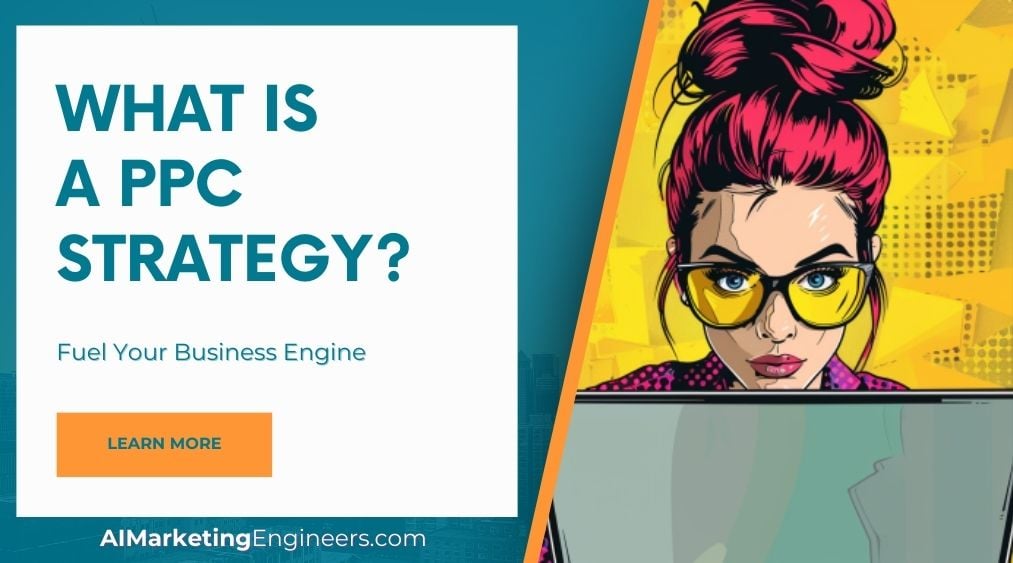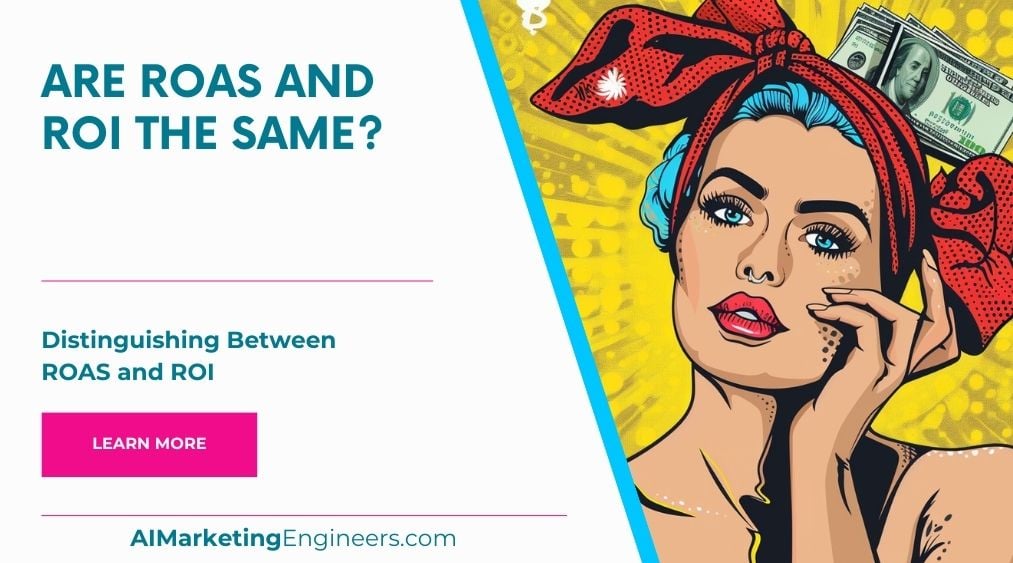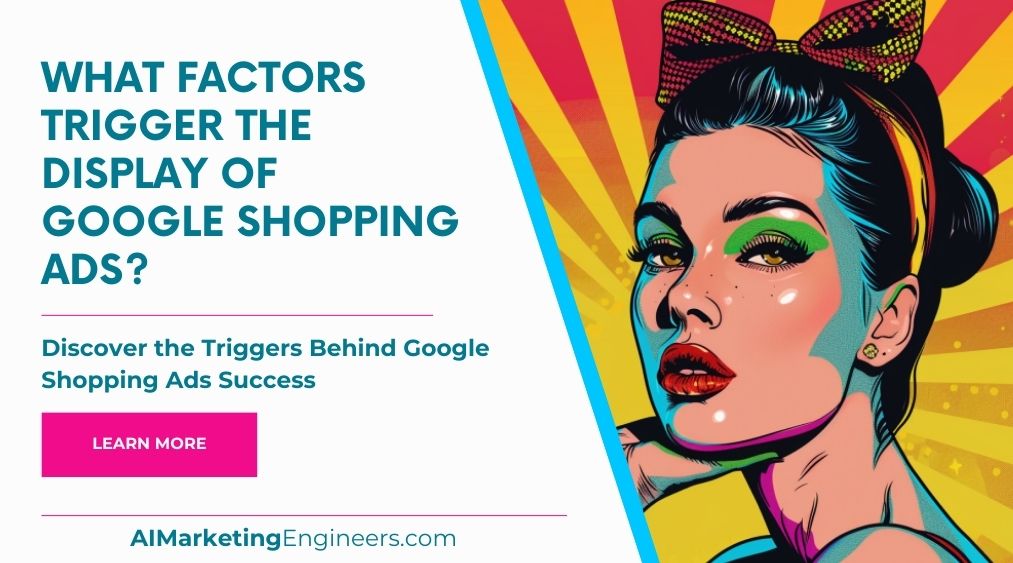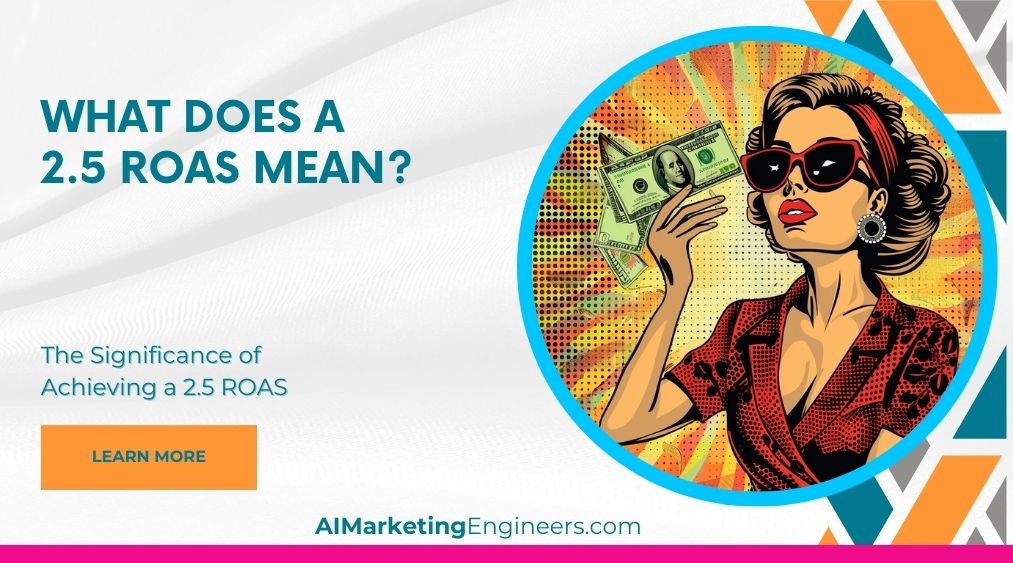Key Takeaways
✅ Define Clear Goals and Target Audience: Start with specific, measurable objectives - whether it's boosting sales by 20% or increasing lead quality by 30% - and conduct thorough audience research to enable pinpoint targeting in your campaigns. Actionable Recommendation: Drill down into data from past campaigns and market research to refine your understanding of your audience. Tailor your PPC efforts by creating buyer personas, focusing on their pain points, and preferences to drive engagement and conversions effectively.
✅ Optimize Keywords and Ad Copy: Crucial to capturing a 10% higher CTR can often be the direct result of optimized keywords and persuasive ad copy. Constant refinement based on performance data ensures sustained campaign effectiveness. Actionable Recommendation: Utilize advanced keyword tools to find long-tail, less competitive keywords that could reduce your average CPC by up to 25% while maintaining relevance. A/B test ad copy variations to identify the most compelling message for your audience.
✅ Focus on Landing Page Optimization: Did you know optimizing landing pages can boost your conversion rates by over 11%? A well-conceived landing page is the crux of conversion success, marrying ad content to user action seamlessly. Actionable Recommendation: Align your landing page with your ad creatives to avoid dissonance and bounce rates. Use A/B testing to find the optimal layout and messaging that resonates best with your audience, and ensure your CTA is clear and action-oriented.
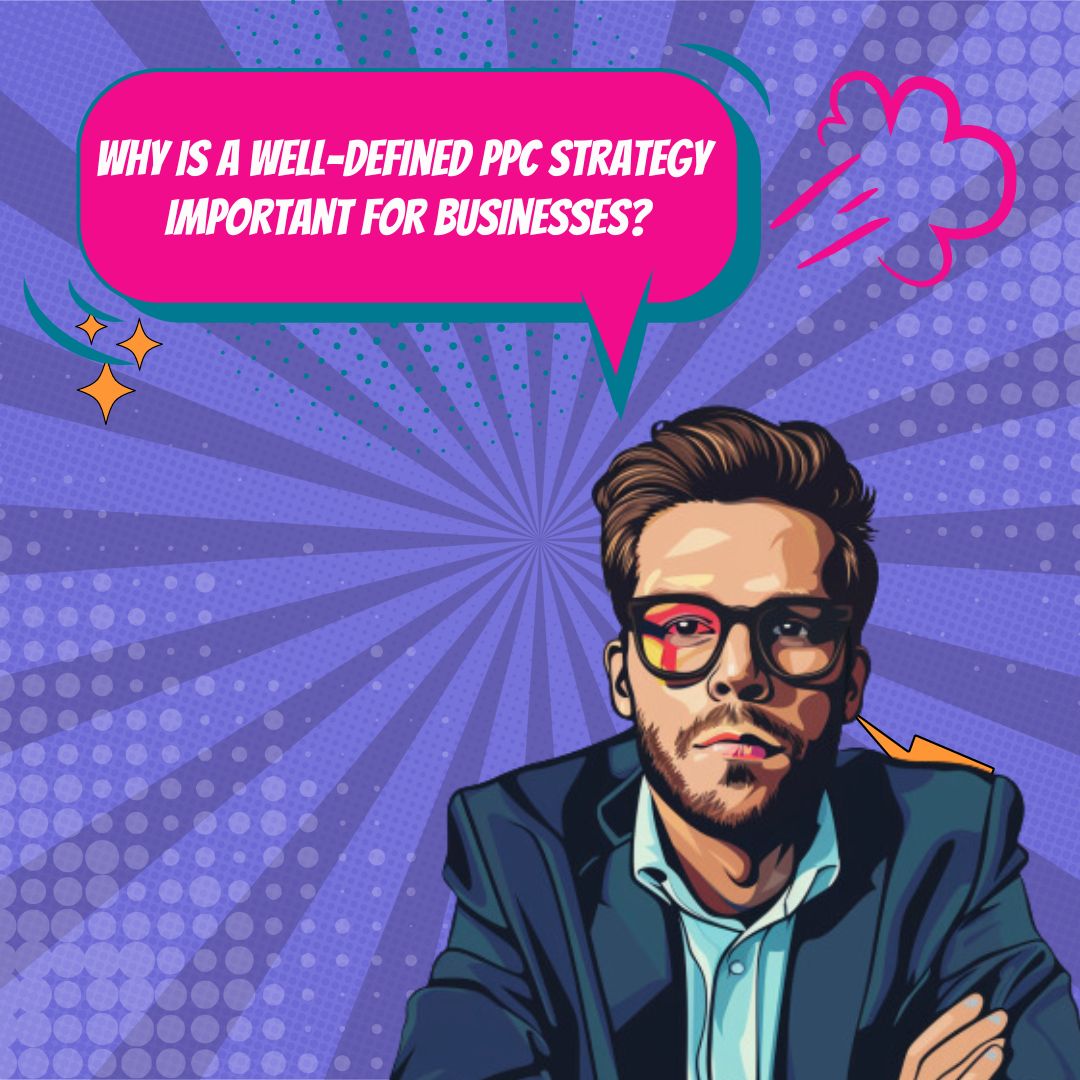
Introduction
Have you ever considered the pivotal role PPC strategy plays in catapulting your e-commerce business to the forefront of digital success? While every click is a potential sale, let's uncover the mastery behind harnessing pay-per-click advertising to fuel growth and skyrocket conversions. Inside our guide, Unlocking Success: A Comprehensive Guide to Understanding PPC Strategy, we delve into the art and science of PPC, from setting practical goals to crafting ads that speak volumes to your target audience. Join us as we unveil innovative approaches to optimize your ROAS and turn clicks into customers. Prepare to be armed with groundbreaking insights and actionable tips that will reshape your digital advertising playbook. Let's unlock your online potential together, one click at a time.
Top Statistics
| Statistic | Insight |
|---|---|
| Global PPC ad spend: Estimated at $136.87 billion by 2026 with a CAGR of 6.9%. (Source: Statista) | This trajectory signals a lucrative and expanding marketplace where competitive PPC strategies could yield significant ROI. |
| Google Ads dominance: Accounted for 38.6% of global digital ad spending in 2020. (Source: eMarketer) | Reflects the importance of mastering Google's PPC ecosystem to maximize visibility in a heavily trafficked space. |
| Mobile PPC engagement: Mobile devices generated nearly 77% of paid search clicks globally in Q2 2021. (Source: Merkle) | Optimizing for mobile is non-negotiable, illustrating the high engagement of today's mobile-first audience. |
| Average CTR for search ads: Stands at 3.17% across all industries. (Source: WordStream) | A benchmark for evaluating the effectiveness of current ad copy and targeting in your PPC strategy. |
| Retail PPC spending forecast: Retail and consumer products to top PPC ad spend by 2024. (Source: Forrester Research) | Indicates a shift in PPC investments towards consumer goods, hinting at where future ad spend may see the most return. |
PPC Strategy
Pay-Per-Click (PPC) advertising is the model where advertisers pay a fee each time their ad is clicked. It emerged in the mid-1990s and has evolved with the internet, becoming a staple in digital marketing strategies. The history of PPC began with search engines like OpenText in 1996, with Google AdWords revolutionizing the space in 2000. Today, platforms like Google Ads and Bing Ads dominate the market. A robust PPC strategy is essential for businesses to drive targeted traffic, increase sales, and achieve measurable marketing objectives efficiently.
Setting Goals and Objectives
Clearly identifying business goals and objectives—whether it's increasing brand awareness, generating leads, or driving sales—is the first step in any PPC campaign. These goals must be in harmony with the overall marketing plan, creating a cohesive approach across all channels. Critical to success is establishing quantifiable key performance indicators (KPIs) such as click-through rates (CTRs), conversion rates, and cost per acquisition (CPA).
Keyword Research and Selection
Thorough keyword research underpins the efficacy of PPC campaigns, allowing advertisers to connect with their audience's search queries. Understanding search intent and user behavior helps to tailor campaigns that resonate with potential customers' needs and stage within the buying cycle. Selecting relevant, high-quality keywords is paramount for maximizing visibility and ROI while maintaining cost-effectiveness.

Creating Effective Ads and Landing Pages
Crafting compelling ad copy that stands out and conveys value propositions succinctly can significantly influence click-through and conversion rates. Visually appealing ads with clear calls-to-action are critical in capturing user attention. Ads must lead to optimized landing pages that provide a seamless user experience, reinforcing the ad's message and driving conversions.
Budgeting and Bidding Strategies
Formulating an effective budget and bidding strategy ensures that PPC campaigns are cost-effective and yield desired results. Understanding the nuances of cost-per-click (CPC) and anticipated return on investment (ROI) helps in making data-driven budgeting decisions. Many businesses benefit from automated bidding strategies that leverage machine learning to optimize for conversions or value.
Monitoring, Analyzing, and Optimizing Campaigns
Continuously tracking campaign performance and comparing results against established KPIs enables marketers to measure success accurately. Detailed analysis of campaign data can uncover valuable insights and highlight tactical areas for improvement. Optimizing campaigns is an ongoing, iterative process that involves fine-tuning every aspect for enhanced performance and ROI.

Inspirational Quotes
1. "The beauty of PPC is that however much you want to spend, even if it's $5, you can see your ad in the top position. It's a great equalizer." - Susan Wenograd
2. "PPC is like an art, and you can't rely on a machine to paint for you. There's a human element to it that can't be replaced." - Larry Kim
3. "The future of PPC is not just about keywords and ads, but about understanding the customer journey and creating a seamless experience across all touchpoints." - Brad Geddes
AI Marketing Engineers Recommendation
Recommendation 1: Utilize Machine Learning for Bid Optimization: Leverage advanced machine learning algorithms to automate bid management within your PPC strategy. Current data shows that AI-driven PPC campaigns can yield a 20-30% increase in conversion rates when compared to manually managed campaigns. By allowing AI to monitor and adjust your bids in real-time, you'll maximize ROI by bidding more competitively on high-converting keywords and reducing spend on underperforming ones.
Recommendation 2: Integrate Voice Search into Keyword Strategy: Capitalize on the rising trend of voice search, which currently accounts for 20% of mobile queries, by integrating natural language phrases into your keyword strategy. This involves optimizing for longer, question-based queries that reflect conversational speech patterns. Early adopters of voice search optimization within their PPC strategy are likely to outpace competitors in capturing this growing segment of search traffic.
Recommendation 3: Employ Cross-Channel PPC Analytics Tools: Adopt cross-channel PPC analytics tools such as Google Analytics 4 or Adobe Analytics to gain a holistic view of your campaign performance. There's power in understanding the customer journey across all digital touchpoints; blending data from Google Ads, social media advertising, and programmatic campaigns can uncover hidden insights that drive efficiency and profitability in your PPC strategy. With these integrations, businesses can achieve a higher level of campaign attribution, allowing for more informed budgeting decisions and strategy refinements.

Conclusion
The mastery of PPC strategy is akin to unlocking a treasure trove of digital marketing success. It's clear that every click counts and each aspect of the PPC universe plays a crucial role—from aligning with your overarching goals, diving deep into keyword research, to sculpting persuasive ads and landing pages, all the way through to operational excellence in budgeting and bidding. Remember, businesses that stay the course with a fine-tuned PPC strategy witness astounding results: studies show that for every $1 spent on Google Ads, businesses can earn an average revenue of $2. That's a 100% ROI, which speaks volumes to the potency of this approach.
But that's just the starting line. The continuous cycle of monitoring, analyzing, and optimizing ensures that your PPC crusades are not a one-time victory, but a series of successful conquests. Reports indicate that advertisers who consistently refine their PPC campaigns can improve ROI by up to 70%. This emphasizes the need to treat your PPC efforts not as a set-it-and-forget-it campaign, but as a dynamic and ever-evolving component of your marketing ecosystem.
Our digital odyssey through PPC strategies comes equipped with an arsenal of empowering insights. Armed with the knowledge you now hold, you're ready to navigate the PPC landscapes with confidence. The road ahead is bright for those who apply the principles we've discussed, as they are foundational to sculpting an incredibly successful PPC strategy. The canvas of e-commerce will continue to shift and change like a kaleidoscope—stay curious, stay informed, and remember: the power of PPC is perpetually at your fingertips. So, are you ready to turn each click into a tale of triumph? Go forth and conquer your market, one click at a time.

FAQs
Question 1: What is Pay-Per-Click (PPC) advertising?
Answer: PPC advertising is an online marketing model where advertisers pay a fee each time one of their ads is clicked. This form of advertising allows businesses to display ads on search engines, social media platforms, and other websites, targeting specific audiences based on keywords, demographics, and interests.
Question 2: Why is a PPC strategy important for businesses?
Answer: A well-planned PPC strategy is crucial for businesses because it helps them reach potential customers at the right time and place, driving targeted traffic to their website. It also allows businesses to measure and optimize their advertising efforts, ensuring they get the best return on investment (ROI) from their marketing budget.
Question 3: What are the key components of a successful PPC strategy?
Answer: A successful PPC strategy includes several key components, such as identifying the right target audience, selecting relevant keywords, creating compelling ad copy, designing optimized landing pages, setting a realistic budget, and continuously monitoring and optimizing campaigns.
Question 4: How does PPC advertising differ from other digital marketing strategies?
Answer: PPC advertising differs from other digital marketing strategies, such as search engine optimization (SEO), social media marketing, and content marketing, in that it allows businesses to pay for immediate visibility on search engine results pages (SERPs) and other platforms. Other strategies may take longer to produce results but can be more cost-effective in the long run.
Question 5: What are some advanced PPC strategies for experienced marketers?
Answer: Advanced PPC strategies for experienced marketers include remarketing or retargeting campaigns, using audience segmentation and custom affinity audiences, implementing automated bidding strategies, leveraging dynamic search ads and responsive search ads, and utilizing A/B testing to optimize ad copy and landing pages.
Question 6: How can business owners measure the success of their PPC campaigns?
Answer: Business owners can measure the success of their PPC campaigns by tracking key performance indicators (KPIs) such as click-through rate (CTR), conversion rate, cost per click (CPC), cost per acquisition (CPA), and return on ad spend (ROAS).
Question 7: What are some best practices for creating effective PPC ads?
Answer: Best practices for creating effective PPC ads include using concise and compelling ad copy, including relevant keywords in ads, highlighting unique selling points (USPs), creating customized landing pages for each ad, and utilizing ad extensions to provide additional information.

Academic References
- Szetela, D., & Kerschbaum, J. (2019). Pay Per Click (PPC) Advertising: An Hour a Day. Wiley Publishing. This book stands as a comprehensive resource for those seeking to master PPC campaigns, delivering a strategic walkthrough that includes keyword research, crafting effective ad copy, and techniques to monitor conversion.
- Kingsnorth, S. (2017). Digital Marketing Essentials. Routledge. In Chapter 8, Kingsnorth demystifies Pay-Per-Click advertising, decoding its significance in digital marketing landscapes with a focus on best practices, bidding mechanics, and the interpretation of success metrics.
- Brough, A., et al. (2014). Effectiveness of Google AdWords for Small Businesses. Journal of Retailing. Springer Link. This pivotal study analyses Google AdWords' influence on small-scale enterprises, deducing that accurately managed PPC expeditions significantly bolster website traction, sales volumes, and customer outreach.
- Liu, Y., & Schindler, R. M. (2016). The Role of Keywords in Search Engine Advertising. Journal of Interactive Marketing, Elsevier ScienceDirect. Exploring the intricate world of keywords, Liu and Schindler highlight the paramount importance of keyword selection and grouping in elevating clickthrough rates and conversions.
- Li, Z., & Xu, X. (2017). A Review on Bid Management Strategies in Sponsored Search Auctions. International Journal of Information Management. Elsevier ScienceDirect. A discerning review that commingles various bid management tactics, revamping the dialogue around balancing cost-effectiveness with ongoing PPC campaign performance optimization.
- Coviello, N., et al. (2017). The Impact of Ad Extensions on Paid Search Advertising Performance. Journal of Interactive Marketing. Elsevier ScienceDirect. This investigation dives into ad extensions' efficacy within PPC realms, articulating a clear correlation between ad extensions and enhanced clickthrough rates and conversions.
- Seock, Y.-K., & Lee, D.-J. (2017). The Role of Emotional Appeal in Online Advertising: The Mediating Effect of Attitude Toward the Ad. Journal of Interactive Advertising. Taylor & Francis Online. A study that underscores the potency of emotional appeal in PPC ads and its capacity to forge affirmative attitudes towards the advertisement, ultimately fortifying ad performance.
